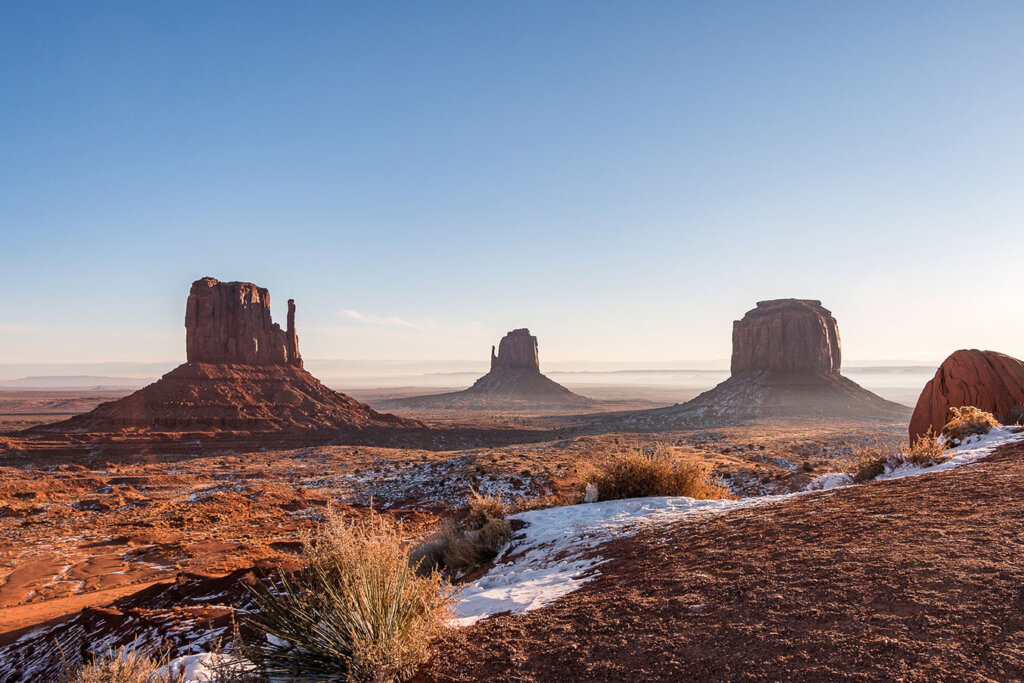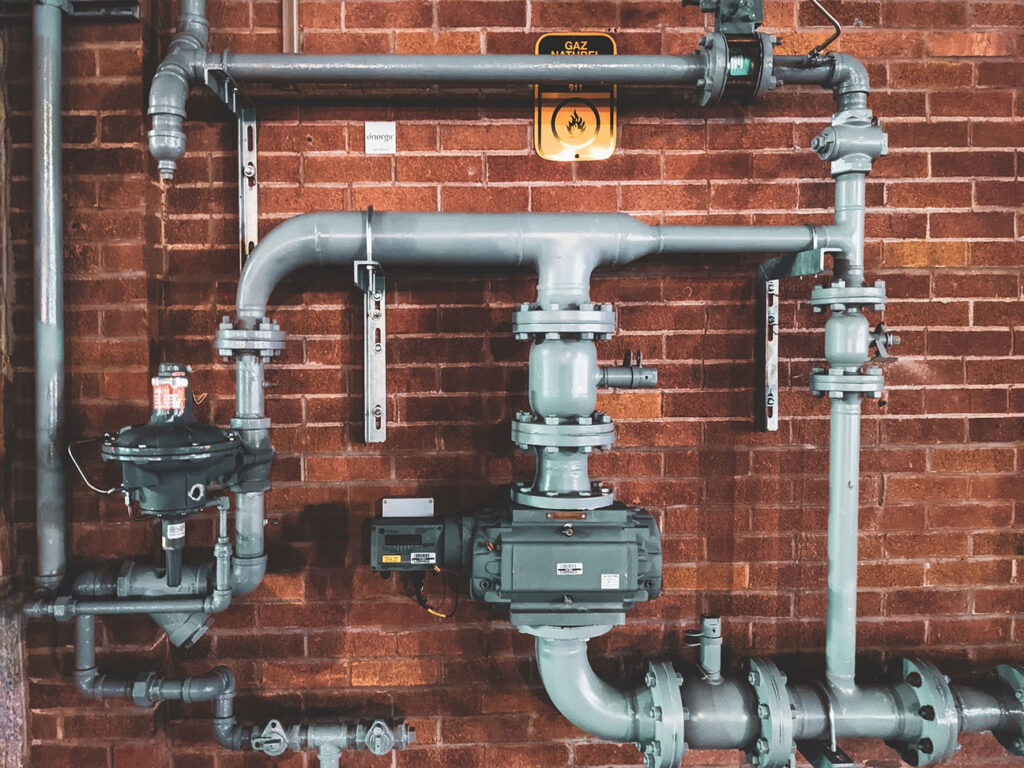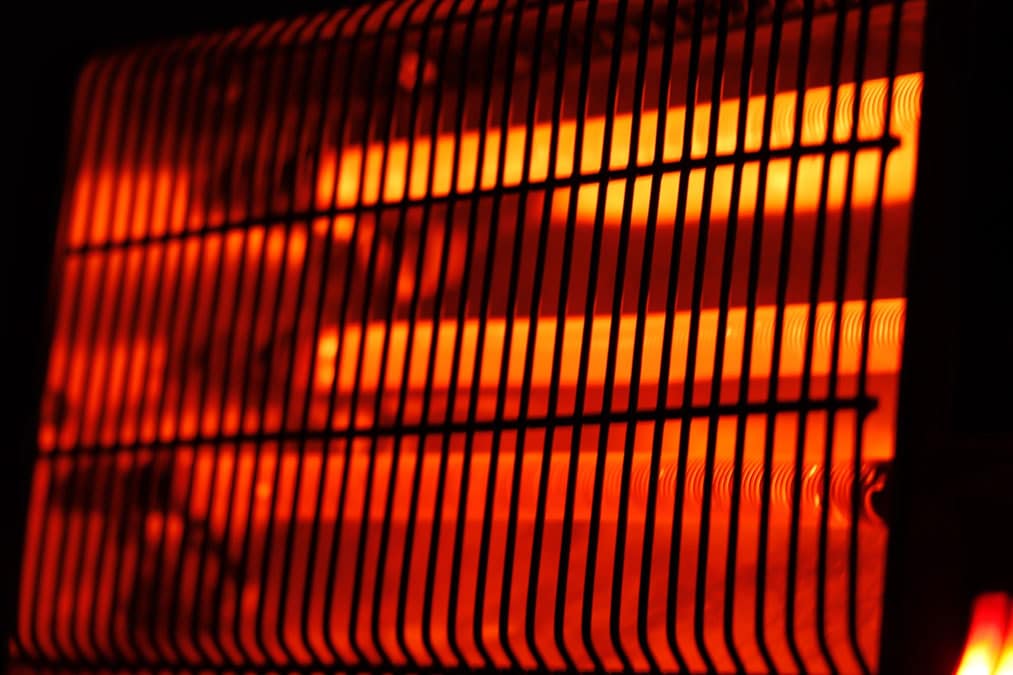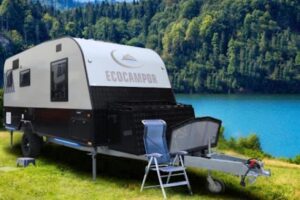I also have a friend who lives in a travel trailer as a way to save money while she goes to school to become a commercial pilot. She is spending so much time flying around the country for school, that it’s not worth it for her to rent a full-size house. Full time RV living allows her the flexibility to travel and live a spontaneous lifestyle as she finishes up her education.
While many people opt for winter RV living, that doesn’t mean it’s for the faint of heart. There are numerous things to research and prepare for in order to live in your RV comfortably and safely through a cold winter.
Is Living in an RV in the Winter Dangerous?

Short answer: It can be, but it doesn’t have to be.
There will always be inherent risks to spending time outside during extreme weather systems. Cold weather is a serious danger when not taken seriously. It can freeze your RV pipes and can cause plenty of other issues. One of the biggest mistakes many rookie RVers make is simply underestimating how cold it will get in some regions, and how hard it can be to stay warm when temperatures drop past freezing.
Traveling through the desert doesn’t mean that you will always be facing nice warm temperatures. In the winter, deserts often have extreme temperature swings, sometimes hitting 60℉ during the day, and dropping to the single digits or lower at night.

When temperatures drop below freezing, there are a number of situations that could occur and be potentially harmful to you or your crew:
- Frostbite: Unlikely but not impossible, frostbite is a condition that occurs when skin and tissue freeze after prolonged exposure to cold temperatures.
- Carbon monoxide poisoning: Operate propane heaters for too long without proper ventilation and you risk the build-up of dangerous gas like carbon monoxide. Carbon monoxide poisoning can be fatal and should be taken very seriously.
- Mold: Depending upon the climate you are wintering in, excessive moisture build-up due to rain or snow can result in the growth of molds and mildews in your camper. Living in a moldy environment for too long leads to respiratory issues and other sensitivities.
You have to be tough and determined to pursue comfortable cold weather RVing. These types of dangerous situations can be avoided with due diligence, preparation, and a certain degree of tenacity.
Winter RV Living Tips
Read the following tips and consider how you might be able to improve your RV or equip yourself better for a winter RV camping trip. If you intend to spend a significant amount of time in your RV or travel trailer this winter, consider doing some if not all of these things in preparation.
First, you’ll want to button up the exterior of your RV.
The Exterior
Your shell, your armor, your first line of defense against harsh winter conditions and cold weather. A solid exterior shell will drastically improve your camper’s ability to stay warm and should not be ignored.
Check out this article on insulating a camper for winter weather. It details techniques you can use to fully seal and insulate your camper for peak performance in freezing temperatures.
Seal Penetrations

Using a flashlight and a putty knife, give the windows, doors, vent holes, and any other exterior penetrations a thorough examination. Any seam that looks compromised should be plugged with a hearty bead of all-weather, exterior caulk. What is a compromised seam? Any seam that could allow water or more importantly, cold air, to enter your camper.
Pro tip: A finger dipped in a solution of water and dish soap will give unruly beads of caulk a smooth, professional grade finish.
Don’t forget to crawl up onto the roof and target any AC or furnace vents, and roof windows.
Insulate Storage Compartments
Many campers, especially motorhomes, large diesel pushers, and fifth wheels, have exterior compartments for additional storage. Often uninsulated, these storage compartments can be a weak point in a camper’s insulation situation.
Using rigid foam insulation, insulate the top of the storage compartment so that warmth doesn’t leech through the floor of your camper.
This will be especially beneficial if you have large exterior storage compartments located under your bed. Nothing will make a winter night last forever (in a bad way), quite like a cold mattress.
RV Skirt
An RV skirt works by blocking the cold air, and more importantly wind, from hanging out or blowing under your camper. By creating a mostly sealed pocket of air under your RV, you reduce the amount of heat that leeches out of your home through your floor and undercarriage.
What does an RV skirt look like? That can depend on the budget. Some decide to splurge on a factory-made skirt, constructed specifically for their model of RV. Most people get away with simply piecing together plywood and rigid foam insulation into a solid barrier around the bottom of their camper.
Tanks
When parked in a designated RV campground, many RVers keep their gray water tank open all the time so wastewater can drain as it is created. In the winter, this tactic can result in gray water freezing and damaging your tank or water lines as it expands.
Keep your gray tank and black water tanks closed throughout the winter and only open them during the draining process. Drain gray water frequently to minimize the risk of damage from freezing water.
RV Water Hose
Try full-time RV living without running water, and you’ll quickly learn how unpleasant it can be. This becomes an issue when outside temperatures are cold enough to freeze the hose pumping freshwater into your camper.
Luckily, in this modern world, we have modern innovations. Cue the heated water hose. A heated hose uses a small heat strip and a connection to a 110V power supply to heat the water coming into your RV. This diminishes the risk of water freezing and damaging your spigots, water lines, tanks, and plumbing fixtures.

You’ll want to take every precaution possible to protect your plumbing system through the winter. Plumbing repairs are annoying, costly, and invasive.
A heated RV water hose doesn’t need to break the bank. This heated hose only cost $54 plus shipping costs. Personally, I would invest some extra cash into a high-quality heated water hose to ensure you don’t end up with burst pipes on an extra frigid winter night.
The Interior
With the exterior of your rig all buttoned up, you can now head inside and fortify the interior against winter weather.
Windows
Even with a perfect seal on the outside, windows remain a significant weak point to overall heat control in an RV.
Using double sided foam tape as adhesive, stretch sheets of thin, clear, plastic film across your window frames. Make sure the sheet is pulled taught and creates a sealed pocket of air between the windowpane and plastic sheet.
By sealing your RV windows this way, you create an insulating layer of air in between the outdoors and living spaces within your camper. This extra layer of air makes a huge difference in staying warm in cold weather.
Insulating Curtains
Some camper outfitters are offering insulated curtains that provide an additional layer of protection. These curtains are insulated, aesthetically pleasing, and can be custom ordered to fit unique sized and shaped windows.
You can also purchase a product similar to insulating curtains that are made for covering the vent hole in your ceiling.
Heaters
Despite all efforts to insulate your camper, you’ll still want to have backup measures ready for those extra cold nights. Having a small arsenal of heaters at your disposal can ensure you never risk suffering freezing temperatures as you live in your RV through the winter.

A portable heater is handy to have around because you can set them up in a variety of locations in your RV, targeting zones that you want to stay extra toasty. Many RVers will set up a portable space heater near their water pump to guarantee it doesn’t freeze and burst. A broken water pump is a massive headache, and a costly, avoidable mistake.
Propane Heaters
A Mr. Heater Buddy propane heater is a very popular portable heater amongst full-time RV dwellers. They use small, cheap propane tanks and can be used almost anywhere.
If you are boondocking in a rig like this Rear folding Camper and don’t have access to shore power, a portable propane heater will definitely be your best bet for staying warm during the winter months.
Never use a propane heater inside your RV without proper ventilation, fire extinguishers, and a carbon monoxide detector.
Electric Heaters
Electric heaters generally require a connection to a 110V or 120V power system. This shouldn’t be an issue if you are wintering in an RV park and have shore power.
An electric space heater produces steady, consistent heat, and doesn’t affect propane usage, making them ideal for winter RV camping.
Keep in mind that a larger RV might need several heaters to stay warm during cold temperatures.
But still there exist many ways to heat camper trailers without electricity.
Heated Blankets
A sometimes-ignored type of electric heater comes in the form of electric blankets and sheets. Requiring only an electrical connection, these heaters are a favorite of people with poor circulation who have trouble keeping their extremities warm.
Alternative Tips
With your RV prepped inside and out, try these additional tricks to keep you and your RV warm during cold weather:
- Merino wool: Merino wool is an absolute blessing. Buying a full set of merino wool underlayers will serve you well in winter weather. I always change into a clean, dry pair of merino wool socks before bed while camping.
- Hot water bottles: A hot water bottle can be filled with hot water and placed in your bed before you sleep in order to preheat your bed and keep you warm through the night.
- Zero-degree sleeping bag: A zero-degree sleeping bag is made to keep you warm down to zero degrees Fahrenheit while sleeping in a tent. If you have one of these and you are using it in a camper that is even slightly warm, you should have no trouble staying comfortable as you sleep.
Focus on Health
It can be easy to ignore health while cold weather RVing. If you do not focus on your own health, and the health of your camper, your winter RV camping experience will be no fun.
Your RV
To maintain the health of your RV, perform frequent and thorough inspections of the inside and outside of your camper. Inspect appliances for signs of damage and wear. Check all plumbing lines for leaks and cracks, immediately addressing any leaks that are found.
Poke around any zone that critters might try to nest in, as the winter season is typically when small animals and insects look for a warm area to nest.
Yourself
Eat well! Cook yourself hot, nutritious meals at least twice a day. Your body will not be able to keep itself warm if it does not have good food and lots of calories to burn. You can worry about your swimsuit body in the spring, winter is for staying healthy.

If you are living in an area that gets low amounts of daylight during the winter days, take vitamin D supplements to keep on top of your mental health. Please consult your primary care physician before adding nutritional supplements to your diet.
Exercise daily to keep your mind, body, and spirit healthy. Even just ten minutes of elevated heart rate everyday can have profound, positive effects on mental health.
Good Luck!
Living in an RV in the winter is an absolute joy. It forces you to be intentional with your time, develop an intimate relationship with nature, and work hard to have a comfortable life.
With some preparation, enthusiasm, and a large serving of elbow grease, you should have no trouble setting yourself up for a cozy winter in your RV. Have fun and happy trails!



